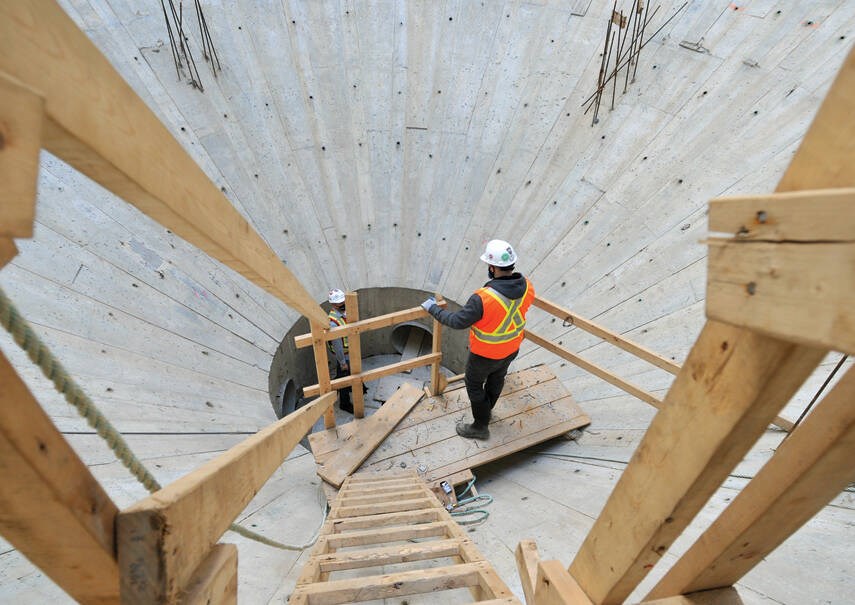Last week, the Metro Vancouver Board opted for a temporary fix to the North Shore Wastewater Treatment Plant debacle by announcing an “independent performance audit.” This move was less about finding the truth and more about postponing further public outcry.
Originally, this massive boondoggle was supposed to be done and dusted by 2020 for $700 million. Fast forward to now, and we’re staring down the barrel of 2030 with a $3.8 billion price tag.
But sure, let’s pretend an audit will fix it. Forget the missing glossy report – the mess is already crystal clear. Metro Vancouver’s mission wasn’t just building a wastewater treatment plant. It was all about making every decision look inspired. It wasn’t about getting things done. It was about covering management’s backsides.
The original request for proposals from 2010 looked for a contractor to design and build the plant. Bold move, but that’s not how you usually tackle bespoke public infrastructure projects. Normally, you design first, then bring in the construction crew. But Metro Vancouver? Nah, they didn’t want to deal with the tedium of consecutive public procurements.
Then there’s the whole “fixed price” contract. Public authorities love to trot out the term, but it’s mostly PR fluff unless you know what you’re doing. Spoiler: they didn’t. The bidders couldn’t even begin to guess the real costs of the project accurately, but some took a calculated shot in the dark anyway.
Enter Acciona, a Spanish conglomerate with experience in building wastewater plants. On paper, their selection seemed logical. In reality? It seems they were engaging in a common strategy among savvy multinationals bidding on public contracts: secure entry by “buying” the deal, then claim some unrealized assumption underpinning the whole proposal was amiss, and then fly in senior management with a sob story before seeking a mid-point renegotiation. Eager to avoid all the bad exposure of default, public officials customarily throw the contractor a lifeline.
Sure enough, Acciona’s “we’ve got this” turned into “we’re doomed” in record time. Less than a year into construction, they were already crying over unforeseen soil conditions. Metro Vancouver, of course, kept changing its mind about what it wanted, making a bad situation even worse.
Then the inevitable happened: Acciona started asking for more cash. To their credit, Metro Vancouver pushed back. But the project was already circling the drain, and the much-hyped “deficiencies” we’re hearing about now are probably just the result of trying to cut corners in a doomed fixed-price setup.
Companies like Acciona know the drill. They can vanish into the ether, leaving the lawyers to duke it out. By the time both sides have assembled their evidence and are prepared to present a case, public interest has faded, and the dance ends in obscurity, with everyone saving face – except the taxpayers, that is.
Now, Metro Vancouver is parading around this audit like it’s a solution. Spoiler: it’s not. It’s just more management self-preservation.
There will be no bombshells – just some vague recommendations and a lot of back-patting. Acciona won’t participate because of the pending litigation. Metro Vancouver’s story will be well-rehearsed. The top firms that are candidates to perform the audit, meanwhile, are not about to bite the hand that regularly feeds them big advisory contracts either.
What taxpayers really need is accountability. Like the Harry Truman “the buck stops here” kind of accountability or the type that befalls soccer coaches for unsanctioned drone flights at the Olympics.
Instead, taxpayers are stuck footing the bill at an average of $700 per residence annually for the next 30 years. Worse, as bad as this is, the culprits responsible are untouchable at the polls.
Charlie Grahn teaches supply chain at Langara College and public procurement for Supply Chain Canada. He has also contracted for a wastewater treatment plant in North Vancouver (but not this one, he wants everyone to know).
What are your thoughts? Send us a letter via email by clicking here or post a comment below.



